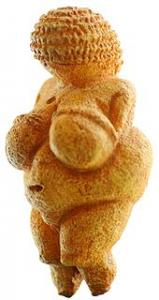On science blogs this week: Fat
SUSTENANCE ABUSE: OBESITY CAUSES, CURES, GENES, ENVIRONMENT, DRUGS, AGRICULTURE, AND GOVERNMENT POLICY. An unprecedented collaboration among HBO, the Institute of Medicine, the Centers for Disease Control and Prevention, and the National Institutes of Health has made this de facto Obesity Week, and bloggers have responded admirably.
There were several reviews of this week's HBO series "The Weight of the Nation," for example Deborah Kotz's useful discussion at the Daily Dose. At Food Politics, Marion Nestle briefly summarized the series and its accompanying IOM report, arguing that, while they were realistic about the extent and consequences of obesity, what they didn't offer was inspiration for combating it, and inspiration is what is needed.
That’s why I wish the programs had focused as much on social responsibility as they did on personal responsibility. I wanted to see the programs take leadership on how government can help citizens reduce the social, economic, and business drivers of obesity.
DEPARTMENT OF MAGIC BULLETS, OBESITY DIVISION. I don't know whether the Food and Drug Administration planned to participate in the informal obesity week, but that agency provoked blogging too. One of its advisory panels approved the weight-loss drug lorcaserin despite mediocre effectiveness and the same sort of heart risk that doomed a previous weight-loss drug, Fen-Phen and despite the fact that the drug had previously been rejected, Deborah Kotz reports at Daily Dose. Larry Husten explains at CardioBriefs and so does Marion Nestle at Food Politics. She notes
Shares of the maker of the drug [Arena] nearly doubled after the decision. The Times reported that “Arguments by investors have been passionate.”
WHAT SHOULD DOCS BE DOING ABOUT OBESITY? One thing they can do besides writing prescriptions for iffy drugs, according to the IOM report, is routine measuring of body mass index. Judith Graham at Kaiser Health News reports that professional medical groups have recommended routine BMIs for years, but there are factors discouraging it, like lack of insurance reimbursement. (Medicare has changed its mind about that and recently began paying for 6 months' worth of obesity counseling.)
I'm not against entering the BMI number in a patient's chart, and perhaps calculating a number and reporting it to a patient does help raise consciousness. But obesity is not a hidden condition like diabetes or hypertension. Docs who need BMIs to know whether a patient is fat aren't using their eyes.
Moreover, in a post at the Health Care Blog titled "Shame," doc Rob Lamberts explains how it's not so simple.
Obese people are rarely under the impression that it is perfectly fine that they are overweight. They rarely are surprised to hear a person saying that their weight is at the root of many of their problems. Obese people are the new pariahs in our culture; it used to be smokers, but now it is the overweight.
A culture of blame, he says, works against weight loss. It's easier to lose weight when you like yourself and want to do something about your health. The idea that patients' personal worth is tied to their BMIs, he argues, is extremely damaging.
At Food Stuff, Amanda Johnson describes a new paper that reviews recent literature on effective ways to manage obese patients. Nothing novel about the advice, which is to encourage physical activity and a diet low in calories and fat (and maybe cognitive behavioral therapy for reinforcement.) Conventional wisdom. But it may not be correct, as we shall see in the next section.
COMPLEX TRAITS AND SIMPLE MATH. A couple of bloggers took on a math-based proposal by the aptly named Carson Chow. Chow threw a bunch of equations into the hopper and concluded that the basic cause of fat was overproduction of food. At The Mermaid's Tale, Anne Buchanan points out that this idea is hardly new. It has been promulgated by others without the help of equations, notably Michael Pollan, who singled out corn as especially evil.
At SciAm's Observations, Michael Moyer restated Chow's proposition as "we eat too much," which is a slightly different point. But never mind, because his argument seems to me sound, which is that the evidence appears to show that all calories are not equal, sugar being the baddie du jour. Moyer argues
We’re not getting fat because we’re eating more. We’re getting fat because of what we’re eating more of. The biochemistry that explains why this would happen is complex — certainly difficult to include in a computer model — but that doesn’t make it wrong.
Dismissing Chow's prescription — simply cut calories and be vigilant the rest of your life — Buchanan makes the same point. Obesity is very, very complicated, embracing as it does genes, environment, diet, exercise, hormones, advertising, and — by implication, as Nestle would have it — government policy and capitalism,. To which I would respond "Duh," except that we do seem to seek a single magic bullet to fix obesity, not to mention other life challenges.
Which brings us to the very high-profile science journalist Gary Taubes and his promulgation of a (relatively) simple solution to obesity: Eat more meat, more of some kinds of fats, more leafy vegetables, and hardly any carbs. (This recent link is from The Daily Beast, but he's written about this eating pattern in many places for years. And won prizes for the work.) Some call it the paleo diet or the caveman diet, although that's not Taubes's term. Homo sap is at most only a few thousand years removed from that sort of diet, and there's epidemiological and biochemical evidence supporting the ill effects of the dramatically different eating patterns of the past few decades, as Taubes shows.
There's also a lot of anecdotal evidence that low carbs are the way to go. Yes, I know, even a great number of anecdotes do not data make, but combined with the evidence from research renders them especially intriguing. See, for example, a post from last Tuesday by Russ Poldrack. Poldrack is a neuroscientist specializing in cognition, and he explores the science of the paleo diet as well as his personal experience. He also explores the reasons for resistance to the the evidence, noting
the fact that the rise in obesity has occurred alongside declining fat intake (coupled with increasing carb intake) over the last 40 years makes it pretty clear to me that the standard theory is just plain wrong, and that the carb theory is a viable alternative that needs to be studied more intently. Unfortunately, many of the thought leaders in this area continue to expound solutions based on the "calories-in/calories-out" and low-fat ideas that got us here in the first place.
SHORT SHRIFTS The inexhaustible Bora Zivkovic, blogging czar at SciAm, has launched The Scienceblogging Weekly, another Friday must-read. He promises to post links to the best of the best of everything he reads, which is pretty much everything written, so get comfortable.
Chinese scientists are reporting that they have carried out a teleportation — transportation not of physical objects but of the information that describes them — that busts the previous distance record. At the Physics arXiv blog, KFC says the distance traveled was 97 km. They teleported only photons, but still. I will resist saying, "Beam me up, Scotty," but obviously it's only a matter of time.
IS IT ART, OR IS IT PORNO? So it appears that the oldest cave art discovered up to now, dated at about 37K BP and situated in France, depicts a vulva. Or so the experts say. Experts in cave art, that is. Not, it seems to me, experts in female plumbing; anatomically correct it is not. I would myself have said a flower. But then I remembered Georgia O'Keeffe.
See reasons for the vulvar interpretation discussed by Robert Gonzalez at io9 and Live Science's Stephanie Pappas at HuffPo, plus the very circumspect brief — no vulva photo and in fact no mention of vulvas — by Kris Hirst at About.com Archaeology.
I fear that it's saying something significant, and not particularly flattering, if the first artworks produced by Homo sap are believed by the experts to be pornography. And it may be saying something about me that when I heard the news I thought yes, it is significant, and unflattering. But it was not particularly surprising. In fact, my first thought was something approximating "Duh."



